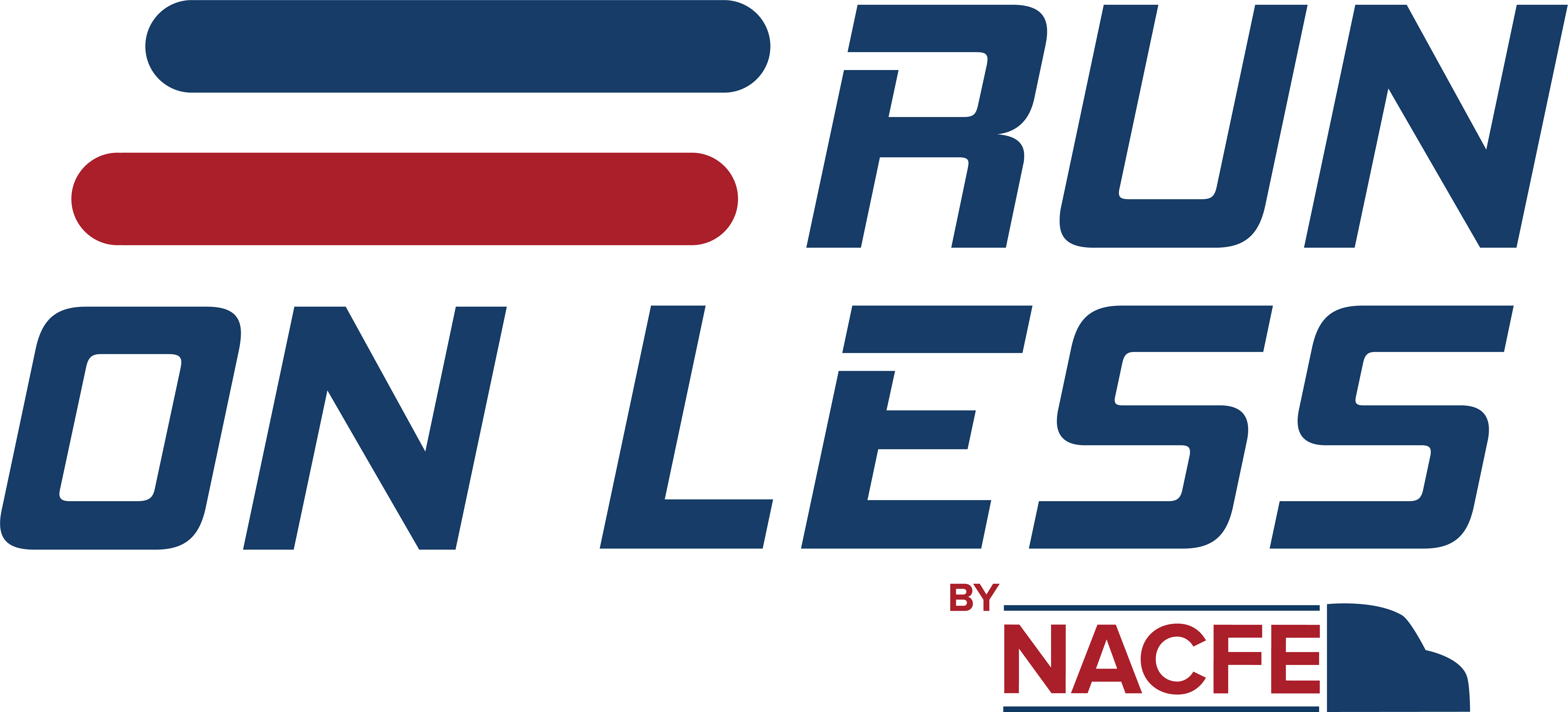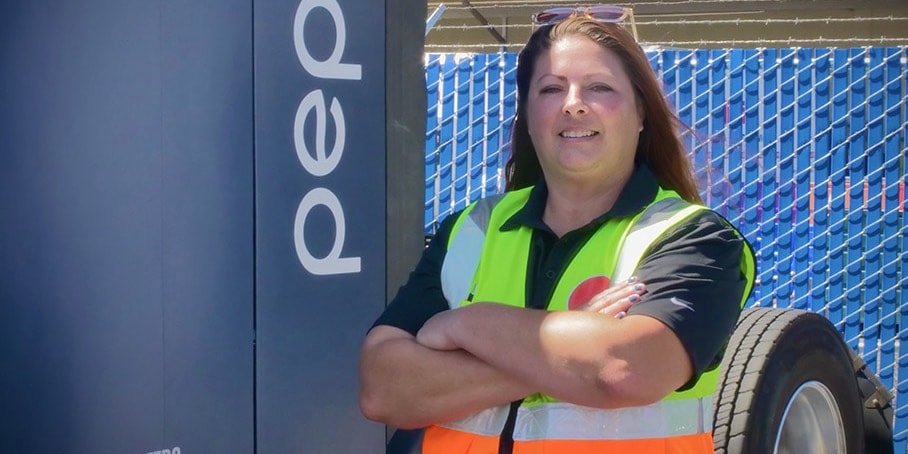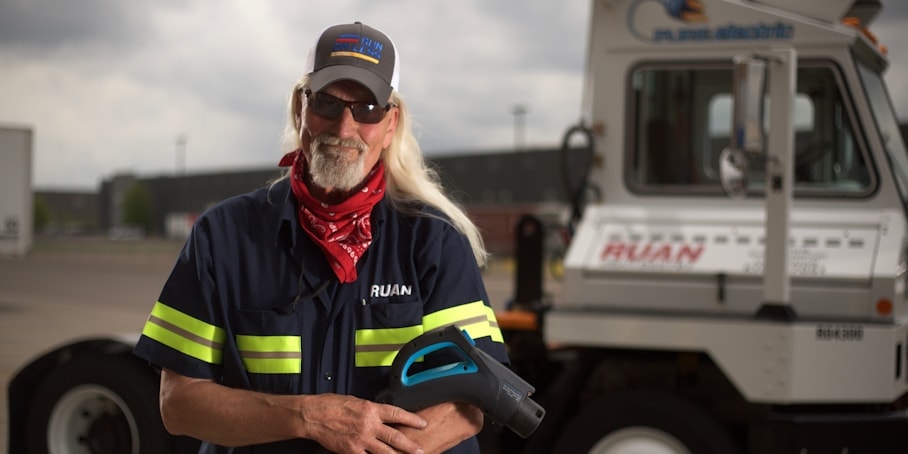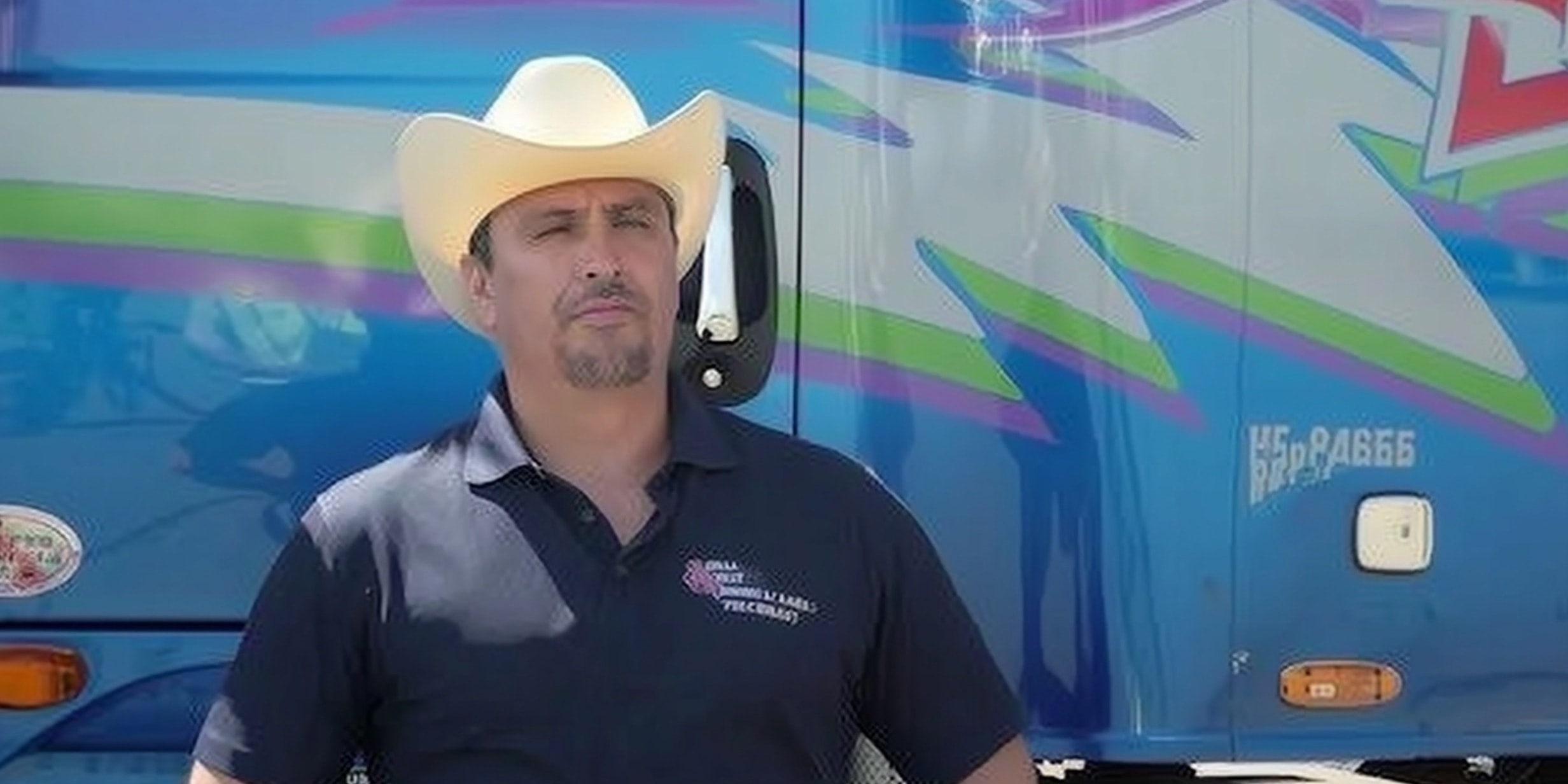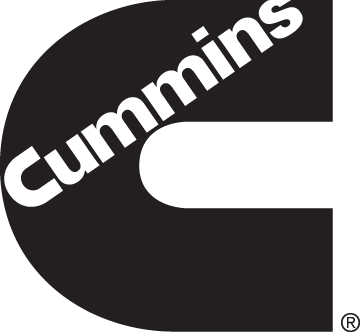13 Bold Fleets to Participate in NACFE’s Run on Less – Electric
A diverse mix of early-adopting fleets will be joining NACFE on the Run.
This fall 13 fleets will take part in the North American Council for Freight Efficiency’s (NACFE) Run on Less – Electric, a real-world demonstration of zero-emissions goods movement.
“These 13 fleets who have committed to Run on Less – Electric represent the diverse range of applications in which electric vehicles make sense.”
— Mike Roeth, executive director, North American Council for Freight Efficiency
The following fleets are helping NACFE and its partner RMI showcase the benefits and discuss the challenges of electric trucks.
- Anheuser-Busch using a BYD tractor in the Los Angeles area
- PepsiCo’s Frito-Lay Division using a Cummins box truck in Modesto, California
- Penske operating a Freightliner eCascadia in Los Angeles, California
- NFI using an Ottawa Kalmar Electric Terminal Tractor in Chino, California
- DHL operating a Lightning eMotors van in the New York City area
- Day & Ross operating a LION6 truck in Montreal, Quebec, Canada
- Ryder Systems, Inc. using a Lonestar Specialty Vehicles terminal tractor in Georgetown, KY
- Purolator operating a Motiv-powered step van in Vancouver, British Columbia, Canada
- Ruan using an Orange EV terminal tractor in Otsego, Minnesota
- Biagi Brothers operating a Peterbilt 579EV out of Sonoma, California
- Roush Fenway Racing using a ROUSH CleanTech truck out of Concord, North Carolina
- NFI using a Volvo VNR Electric out of Chino, California
- Servall Electric operating a Workhorse C1000 in Cincinnati, Ohio
“In order to ensure the long-term success of electric vehicles, it is crucial to begin learning from early deployments and sharing best practices. Over the next six months Run on Less – Electric will be the platform to do just that.”
– Rob Reich, NACFE board chair and Schneider’s executive vice president and chief administrative officer
“We are very excited about the mix that these early-adopting fleets represent and how that reflects the current state of electric truck actions across North America,” says Mike Roth, NACFE’s executive director. “The interest in electric vehicles is spreading across North America as more companies recognize the value of zero-emission solutions.”
- There are three vans, three medium-duty box trucks, a heavy-duty truck and four heavy-duty tractors in drayage and regional haul and two terminal tractors.
- Six operate in California, two in Canada and five more in rest of the United States.
- They are delivering home goods, beer, wine and liquor, baked goods, snacks, groceries, auto parts, mail, and packages and general freight.
The three-week event will start on September 3 at ACT Expo in Long Beach and will feature metrics and daily real-world stories on runonless.com. The Run’s finale will take place at the North American Commercial Vehicle show in Atlanta September 27 to 30.
Title sponsors include Dana, Meritor and Shell, with others sponsoring individual elements of the Run as well. In addition to our title sponsors there are others sponsoring out efforts. Recognizing that the move to electric vehicles takes more than just changes in engines and equipment, one element of Shell’s support of the program will be to provide Renewable Energy Certificates (RECs) equal to the total energy usage of all of the participating battery electric vehicles.
“We are still seeking additional support, and anyone interested in supporting us in our efforts should contact me at 260-750-0106,” Roeth says. For a full list of all the sponsors for RoL-E, click here.
“There is a thirst for knowledge on electric trucks and we are convening stakeholders across the entire electric truck ecosystem to discuss key opportunities and challenges in the deployment of commercial battery electric vehicles.”
– Jessie Lund, senior associate, RMI and host of the Bootcamp educational series
Accompanying the event will be 10 training sessions dubbed the Electric Truck Bootcamp, powered by ACT News. The first one is scheduled for Tuesday, April 20 followed by a new training every other Tuesday through August 24. Topics the Bootcamp will cover include:
- Why Electric Trucks?
- Charging 101 —Planning & Buildout
- Charging 201 —Power Management & Resilience
- Working with Your Utility
- Incentives for Electrification
- Maintenance, Training & Safety
- Finance & Innovative Business Models
- Battery Supply Chains & End of Life
- Global Perspectives
- Drivers & Electric Trucks
You can register for the Electric Truck Bootcamp here.
This is NACFE’s third event in the Run on Less series. The first, Run on Less 2017 focused on long-haul routes and the seven drivers averaged 10 MPG. During the second event, Run on Less Regional, 10 drivers average 8.3 MPG hauling in a wide variety of regional haul applications.
About California Climate Investments: Some of these vehicle-manufacturer pairings are part of California Climate Investments, a statewide initiative that puts billions of Cap-and-Trade dollars to work reducing greenhouse gas emissions, strengthening the economy, and improving public health and the environment — particularly in disadvantaged communities.
About NACFE: The North American Council for Freight Efficiency (NACFE) works to drive the development and adoption of efficiency enhancing, environmentally beneficial, and cost-effective technologies, services, and operational practices in the movement of goods across North America. NACFE provides independent, unbiased research, including Confidence Reports on available technologies and Guidance Reports on emerging ones, which highlight the benefits and consequences of each, and deliver decision-making tools for fleets, manufacturers, and others. NACFE partners with RMI on a variety of projects including the Run on Less demonstration series, electric trucks, emissions reductions, and low-carbon supply chains. Learn more at www.nacfe.org and follow NACFE on Twitter @NACFE_Freight
About RMI: RMI is an independent nonprofit founded in 1982 that transforms global energy systems through market-driven solutions to align with a 1.5°C future and secure a clean, prosperous, zero-carbon future for all. We work in the world’s most critical geographies and engage businesses, policymakers, communities, and NGOs to identify and scale energy system interventions that will cut greenhouse gas emissions at least 50 percent by 2030. RMI has offices in Basalt and Boulder, Colorado; New York City; Oakland, California; Washington, D.C.; and Beijing. www.rmi.org
